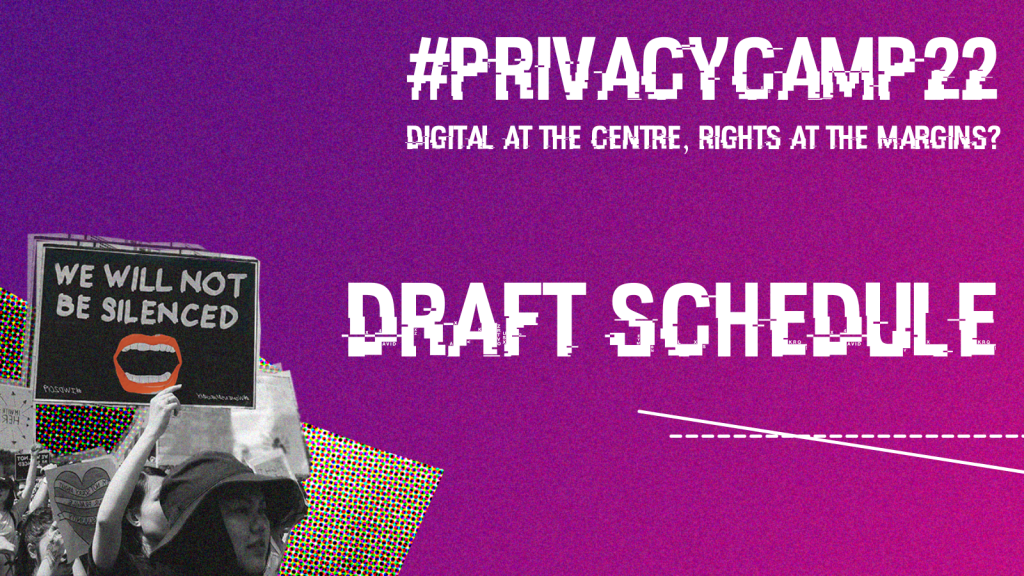Digital at the centre, rights at the margins?
Privacy Camp turns 10 in 2022 and it’s time to celebrate!
The special anniversary edition of Privacy Camp 2022 will be the occasion to reflect on a decade of digital activism, and to think together about the best ways to advance human rights in the digital age.
Check out the draft schedule now to find out what you can expect from the 10th edition of Privacy Camp. The event will take place online on 25 January 2022 from 9.00 to 17.30 CET.

The event will use an open source and privacy friendly tool called Big Blue Button. Participants will receive instructions on how to join prior to the event.
Sessions
In response to our call for panels, we have received proposal tackling the subject from a variety of perspectives.
We are proud to present the sessions that our content committee and the committee’s advisors have selected:
- Connecting algorithmic harm throughout the criminal legal cycle
- Regulation vs. Governance: Who is marginalised, is “privacy” the right focus, and where do privacy tools clash with platform governance
- Centring social injustice, de-centring tech: The case of the Dutch child benefits scandal
- Regulating tech sector transgressions in the EU
- A Feminist Internet
- Drawing a (red) line in the sand: On bans, risks and the EU AI Act
- How it started / how it is going: Status of Digital Rights half-way to the next EU elections
- Stop Data Retention – now and forever!
- The DSA, its future enforcement and the protection of fundamental rights
- Surveillance tech as misclassification 2.0 for the gig economy?
- Ministry of Microsoft: Public data in private hands
The final schedule will be published at the beginning of January.
More information
The 10th anniversary edition of Privacy Camp offers a forward-looking retrospective on the last decade of digital rights. This online edition aims at building on the lessons of the past and at collectively articulating strategic ways forward for the advancement of human rights in the digital society.
Emerging intersections within the realms of regulating digitalisation as well as within other broader social justice movements point that – while some issues remain timeless – the power struggles ahead might happen on new terrain(s). How can we adapt to these new terrains, while drawing on a decade’s worth of lessons? How can we organise with broader groups of people and other communities? What are the points of reflection we must focus on, to address the wider impact of the digital rights’ fight?
